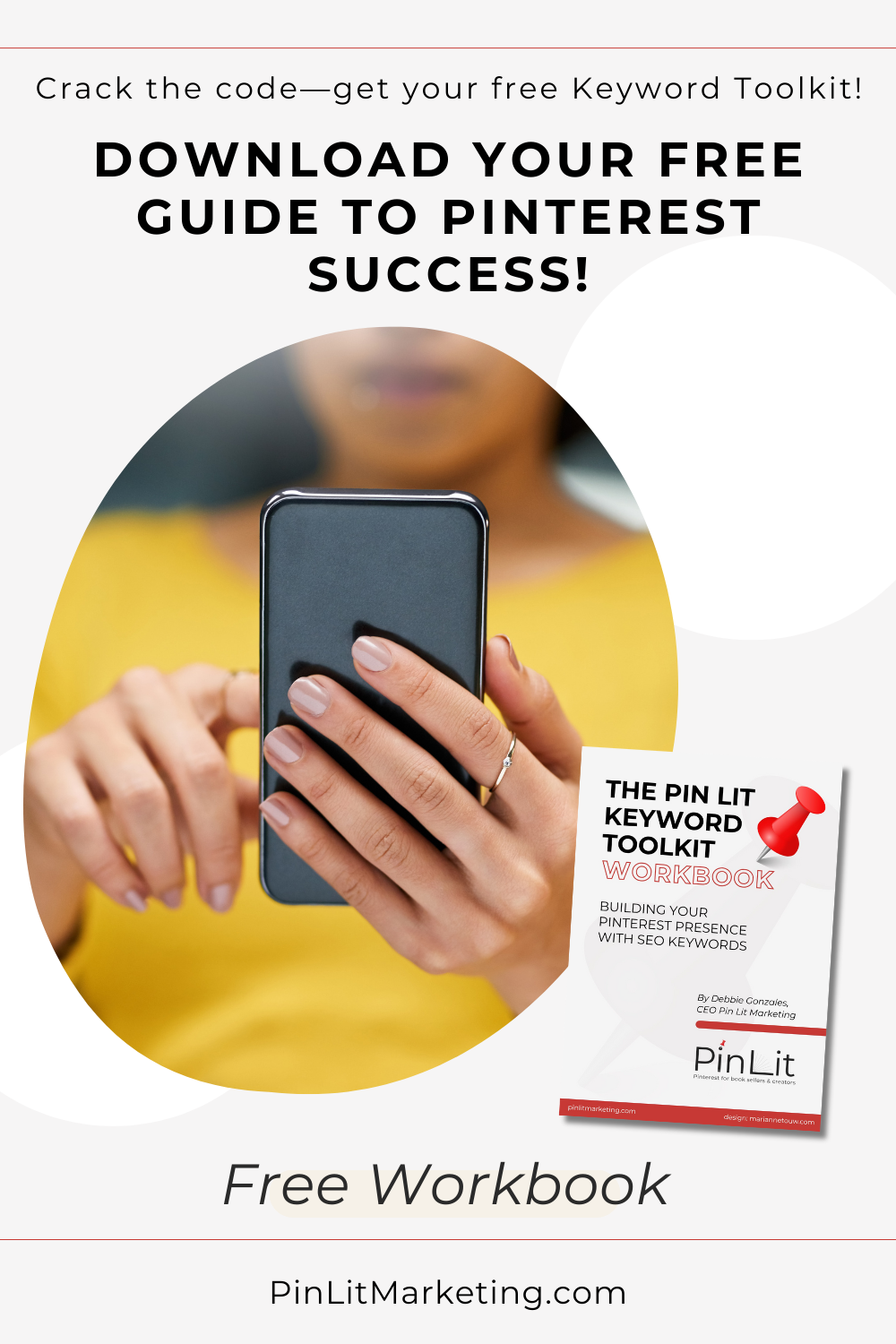A Glossary of Marketing Terms to Showcase Books, Programs & Services on Pinterest
Feeling a little lost when it comes to Pinterest marketing? You’re not alone! For many authors and book sellers, jumping into Pinterest can feel like learning a new language—especially when the jargon sounds like it’s from another planet. But don’t worry, I’ve been there too. The truth is, understanding the key terms is half the battle, and once you’ve got them down, you’ll be ready to tackle Pinterest with confidence. What you need is a simple guide to help you navigate the world of pins, boards, and SEO with ease – The Pin Lit Keyword Toolkit!
Featured below is a list of brief definitions of the essential elements needed to craft effective pin copy. These terms will become your trusty tools as you create compelling and engaging content for Pinterest. Understanding these key terms is the first step towards mastering your strategy to market your books, programs, and services on Pinterest. Let's dive in and get familiar with the lingo that will set you up for success!
Audience Relevance: The degree to which your content resonates with and is valuable to your target audience, ensuring it meets their interests and needs.
Board Description: A brief summary that outlines what users can expect to find on your Pinterest board, including relevant keywords to help improve its visibility and attract the right audience.
Book Category: A broad classification that groups books based on their general content or intended audience, such as children's books, young adult books, or nonfiction. Categories help readers quickly identify the type of book and its primary focus.
Book Genre: A specific classification that defines the style, theme, or subject matter of a book within its category, such as fantasy, mystery, romance, or historical fiction. Genres help readers find books that match their particular interests and preferences within a broader category.
Call to Action (CTA): A prompt that encourages users to take a specific action, such as "Get the Guide," "Download Now," or "Learn More," guiding them on what to do next with your content.
Content Value: The usefulness and relevance of your content to your audience, providing information, inspiration, or solutions that meet their needs and interests.
Educational Content: Information or resources provided through your pins and boards that aim to teach or inform your audience, often including tutorials, how-to guides, and informative articles related to your niche.
Keywords: Specific words or phrases that describe your content, helping Pinterest’s algorithm understand and categorize your pins so they can be discovered by users searching for related topics.
Pin Description: A concise text under your pin that explains its content and purpose, includes relevant keywords, and entices users to engage with your pin.
Pin Format: The layout and structure of your pin, including elements such as images, text, and design, optimized to capture attention and convey your message effectively on Pinterest.
Pin Title: The headline of your Pinterest pin that grabs attention and provides a brief idea of what the pin is about, often incorporating relevant keywords to enhance discoverability.
Pinterest Algorithm: The system Pinterest uses to analyze and rank content, ensuring that the most relevant and engaging pins appear in users' feeds and search results based on their interests and interactions.
Optimization: Enhancing pins, boards, and profiles using relevant keywords, high-quality images, and strategic pinning to increase visibility and engagement.
Seed Terms: Foundational keywords that you input into the Pinterest search bar to initiate the discovery process, helping you identify related keywords and gauge how your content ranks and resonates within the Pinterest algorithm
SEO (Search Engine Optimization): The process of optimizing your content with relevant keywords and strategies to improve its visibility and ranking on Pinterest and other search engines, helping it reach a broader audience.
Target Audience: The specific group of people you aim to reach with your content, defined by characteristics such as age, interests, and needs, ensuring your pins and boards resonate with those most likely to engage with and benefit from your offerings.
Text Overlay: Text that is placed on top of an image in your pin, used to highlight key information, titles, or calls to action, making the pin more engaging and informative.
Themes: Central ideas or messages in a story that offer value by exploring significant aspects of life and the human experience. They help readers relate to characters, gain insights, and learn important life lessons, enriching their understanding and emotional connection to the narrative.
That’s enough for now, wouldn’t you say?
I hope you feel inspired and equipped to boost your Pinterest game. To learn more about how to strategically use SEO keywords to get your pins in front of the right audience, ensuring your books, presentations, and products are discovered by parents, teachers, librarians, homeschooling parents, and teens. Remember, your pins are amazing creations waiting to be found, and SEO keywords are your trusty tools for success.
By nailing down your strategy, hammering home your message, and building a solid foundation, you've set yourself up for a strong and visible Pinterest presence.
For more Pinterest book marketing clarity, inspiration, and encouragement, download your free copy of The Pin Lit Keyword Toolkit here.
You’ve got this! We at Pin Lit are behind you all the way.
Interested in establishing a vibrant presence on Pinterest. Sign up for a Fit Call today and let’s get this party started!

